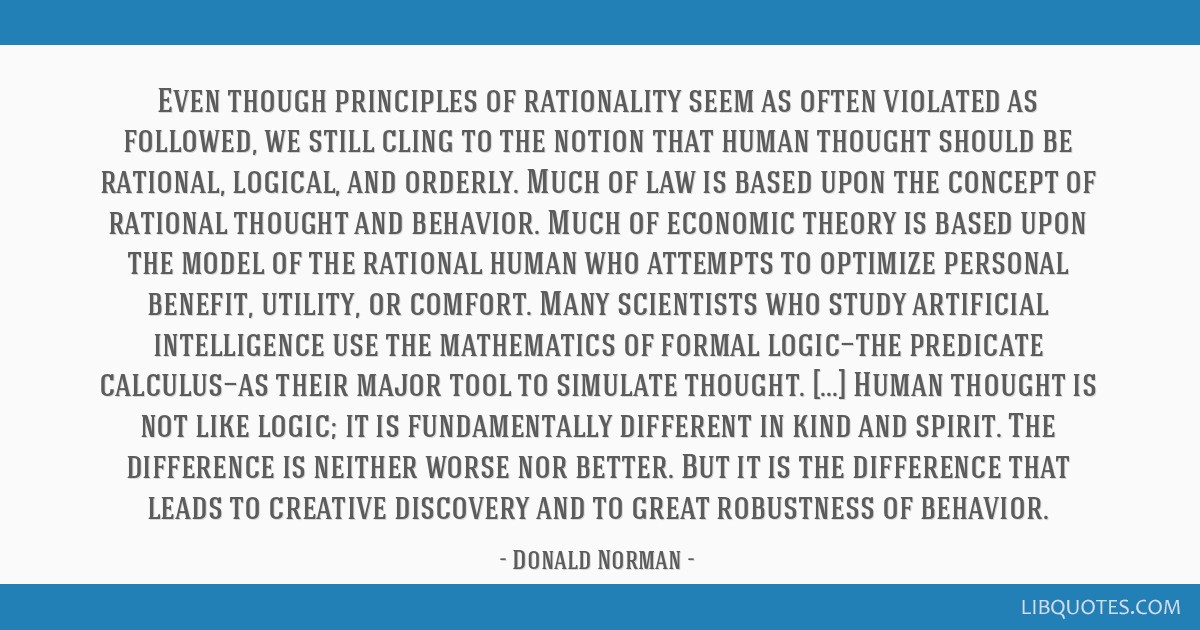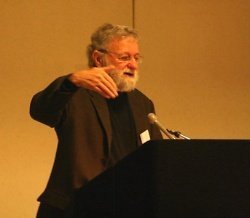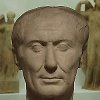Even though principles of rationality seem as often violated as followed, we still cling to the notion that human thought should be rational, logical, and orderly. Much of law is based upon the concept of rational thought and behavior. Much of economic theory is based upon the model of the rational human who attempts to optimize personal benefit, utility, or comfort. Many scientists who study artificial intelligence use the mathematics of formal logic—the predicate calculus—as their major tool to simulate thought. [...] Human thought is not like logic; it is fundamentally different in kind and spirit. The difference is neither worse nor better. But it is the difference that leads to creative discovery and to great robustness of behavior.
Ch. 5, pp. 114–115. - The Design of Everyday Things (1988, 2002)





















